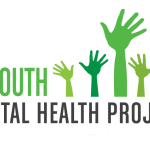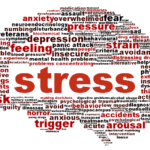Depression and suicide are serious problems among our youth.
Adolescence and young adulthood may be turbulent times for many but too many feel alone, unsupported, and helpless.
Risk Factors for Depression
- Family history of depression
- Suffering from a physical or another mental illness
- Adverse experiences in childhood, such as abuse or lack of care
- Social disadvantage or family poverty
- Learning and other school difficulties
- Lack of a close relationship
- Recent adverse events like bullying or a death or serious illness in the family
When people think of depression, they imagine someone appearing sad or having "the blues". In some instances, this may appear to be true. However, there are other signs, particularly among youth, that may mean depression is a problem... or can turn into a greater issue like suicide.
Signs of Depression
- Unusually sad mood
- Loss of enjoyment and interest in activities
- Lack of energy and tiredness
- Feeling worthless or guilty when they are not really at fault
- Thinking about death or wishing to be dead
- Difficulty concentrating or making decisions
- Moving more slowly or sometimes becoming agitated and unable to settle
- Having sleeping difficulties or sleeping too much
- Changes in eating habits
- Avoid discussing important future events
- Show a decline in school grades
- Snap or start fights with friends and family
- Use alcohol or other drugs
Visit the Virtual Save A Life Wellness Fair for more resources!
Risk Factors for Suicide
- Threatening to hurt or kill themselves
- Seeking access to pills, weapons, or other means to kill themselves
- Talking or writing about death, dying or suicide
- Expressing feelings of hopeless, having no purpose in life or reason for living
- Having rage, anger, or seeking revenge
- Acting recklessly or engaging in risky activities
- Feeling trapped
- Increasing alcohol or drug use
- Withdrawing from friends, family, or society
- Dramatic changes in mood
- Having sleeping difficulties or sleeping too much
- Being anxious or agitated
- Giving away prized possesions
Related Posts
Yorktown Together! COVID-19 Resource Guide
Supporting each other during uncertain times is what Yorktown does best! The Alliance for Safe Kids has partnered with the Town of Yorktown to provide a unique resource that not only captures valuable information regarding the COVID-19 crisis but also includes local updates from many of our sectors on the topics covered in the guide. […]
The Parent Support Network™ Meetings are now Virtual!
RSVP for March 25th. RSVP for April 23rd.
Practice Mindfulness
Here are a few more mindfulness tips to help manage the changes from summer to school routines. Talk to your student. When we’re very close with someone, we anticipate what a loved one’s going through without actually stopping to ask. Honest, interested questions will give your student the courage to open up. Create calm moments. Your student […]
Tips to Manage Stress in College
Stress and anxiety. Both very broad terms that bring so much meaning to an everyday college student. Between the three papers you have to write, that midterm you have to study for, or maybe even that presentation that has to get done for your final grade. These are only a few, however, all of this […]
Parent Support Network – Register Now
Register now by emailing: yorktownpsn@ymhproject.org.





